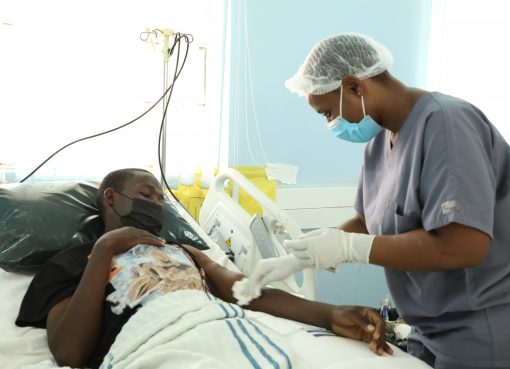The International Day of the Girl Child is celebrated on October 11 annually. However, the day is not specific to any continent but a worldwide adherence dedicated to highlighting and addressing the needs and challenges that girls face across the globe.
Speaking today morning during a press conference in Nakuru city, the Chairperson of the local Civil Society, Ms. Agnes Mwamburi, said the day serves as a reminder of the importance of promoting gender equality and empowering girls to reach their full potential.
She emphasized that the day is an opportunity to advocate for girls’ rights and to raise awareness about the issues they may encounter such as discrimination, violence, limited access to education and health care services.
Ms. Mwamburi noted that the gains and failures of the Kenyan Girl Child, like many other countries are multifaceted. However, she commended the government for the significant progress in improving girls’ enrollment in education. And, gave examples of free primary education and affirmative action policies that have helped reduce the gender gap in enrollment.
Additionally, the chairperson appreciated the empowerment of girls in the country which has led to increased awareness of their rights and the promotion of female leadership. But, she bemoaned the delay in the implementation of the two-thirds gender inclusion in the national parliament, senate, and county assemblies.
She praised the criminalization of child marriage and female genital mutilation, although the implementation and enforcement are still a challenge, mainly due to cultural issues that perceive such retrogressive practices as being cornerstones of their traditions.
However, Mwamburi noted with concern the unrelenting gender-based violence, especially for girls in the informal settlement areas who still face sexual harassment, assault, and domestic violence, that often goes on unreported and unpunished.
She urged the government to address the limited economic opportunities, especially in the rural areas, that lead to poverty and lack of access to quality education, which ultimately leads to limited career prospects and economic independence.
She accused the county governments of the failure to address the high poverty levels in the rural areas, and yet devolution was meant to uplift the economic woes of the lowly in the country.
Additionally, the chairperson said the high rates of teenage pregnancies cannot be solved without improving the economic status of poor households, which are mainly concentrated in the informal settlement areas and remote rural areas.
She appealed to the government to include teenage mothers in the ‘Inua Jamii’ programme that mainly supports the elderly, and people living with disabilities with monthly stipends.
“The issue of single mothers, especially the unemployed cannot be ignored anymore, and matters have been made worse by the current economic woes, that has made it almost impossible for them to feed their children,” says Mwamburi.
The chairperson implored the national and county governments to consider implementing free feeding programs for the very poor, since their conditions are getting dire by the day.
By Veronica Bosibori




